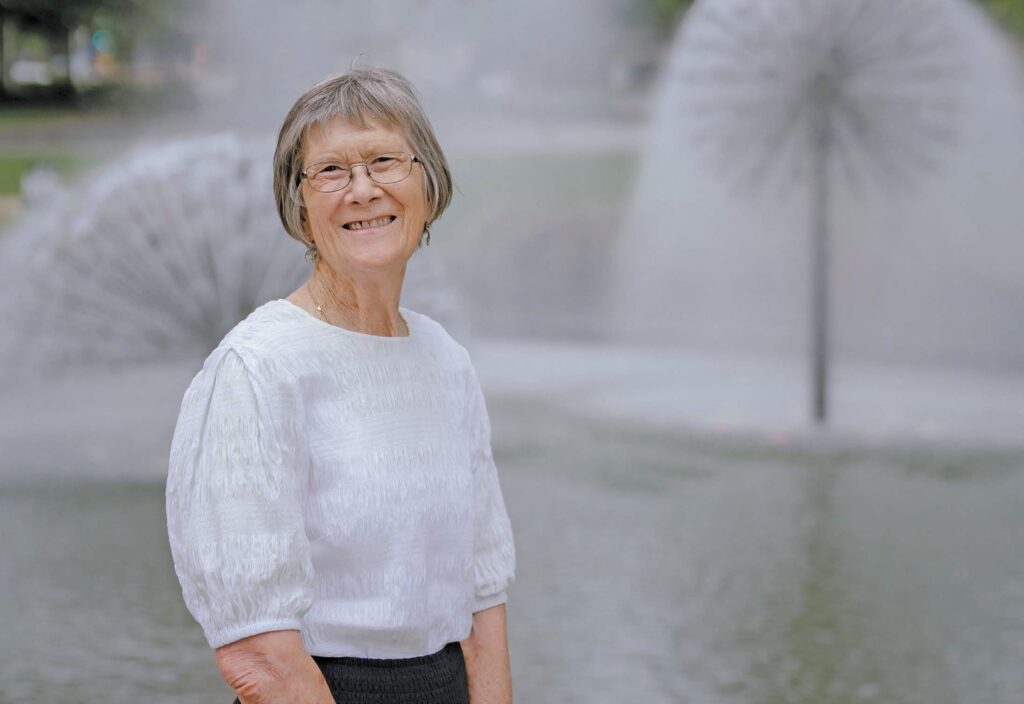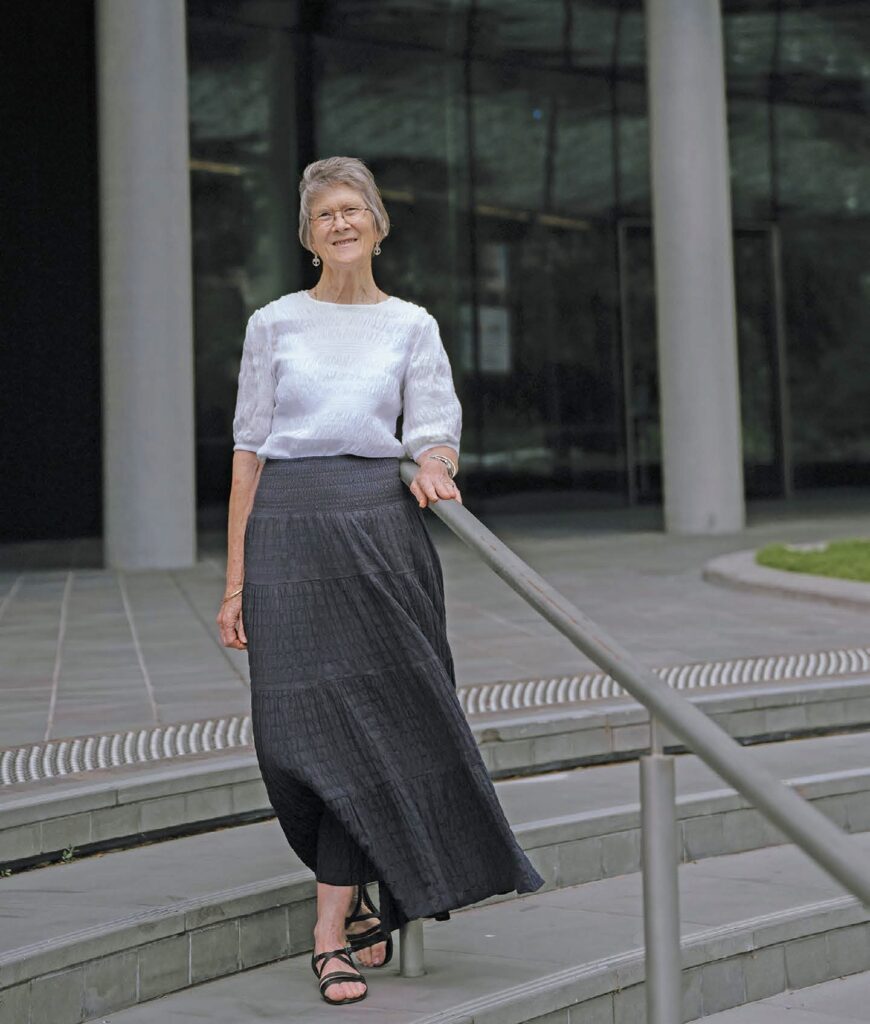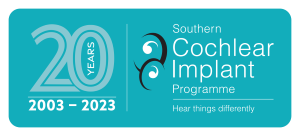Speaking to groups and presenting training sessions at work again are huge milestones for Sally Blondell after her cochlear implant was switched on earlier in 2024. As her hearing deteriorated in recent years, and her hearing aids were becoming less efficient, Sally had to withdraw from delivering presentations and training, which had been a core part of her role in the driver testing and education environment in Christchurch. Using a phone was also becoming increasingly difficult for her.

Sally was shocked and surprised when SCIP’s tests showed she was lip-reading 75% of the time in conversations before her operation. After six months, Sally has 87% hearing in her left ear—a vast improvement from the 4% before her cochlear implant. She still uses a hearing aid in her right ear, which she finds balances sound as she adjusts to the new way of hearing.
“One of the first surprises came when I was back at work the day after being switched on when a colleague came up and was talking to me. I thought, ‘I am hearing you!’” Sally asked him to wait while she took her hearing aid out to double check that it was the cochlear implant enabling her to hear him. “I could feel the transition to my cochlear implant and my brain adapting to pick up and register the sounds,” Sally says. It must have been something to do with the pitch of his speech, as most voices took longer to identify and understand.
“I attach the processor each morning with a smile on my face and think ‘OK, let’s start the day – it’s going to be a good one!’ It’s an incredible journey. The ability of the brain to interpret noise and translate it into identifiable sounds is amazing. It’s hard to think now of when I didn’t have the cochlear implant.”
There are some additional benefits of no longer needing to lip-read: “I don’t have to be at the front of the room any longer during meetings. I can hear from further back. I don’t feel like I am invading people’s space by standing close and looking directly at them. I’m more relaxed around people and my confidence in social environments is returning.”
Post-surgery, her homework efforts with a patient husband—working with her through the exercises in the SCIP workbook—have reaped dividends as she has retrained her brain for sound. The current challenge is to work at identifying music more clearly. Listening to a solo artist on her headphones, rather than groups, is starting to improve the sound, tone, and pitch of the music. Patience and perseverance is definitely the key, she says.

“To me, having been given such a gift, I want to do all I can to make the most of it,” Sally says. She’s an avid user of an online app to practice identifying sounds, words, and sentences. “It’s wonderful being able to hear nature again—birds singing, the wind rustling through trees, walking through autumn leaves, and rain are beautiful to listen to,” Sally says.
She enjoys the outdoors, walking and biking with friends and family. She no longer needs to stop on a hike and lip-read what her companions are saying—it’s talk on the go now. And of course, biking is a lot safer now she can hear the traffic.
“The biggest surprise was when I was in Victoria Square walking one day and I was thinking ‘What is that noise?’ Looking around, it was the trickling sound of the Christchurch Town Hall fountain. That was a magic moment. Every day, I am hearing, identifying, and enjoying new sounds.” She is enjoying walking at the Sumner or New Brighton beaches and listening to the waves coming in.
Four years ago, the last of Sally’s hearing in her left ear failed and her audiologist first mentioned the potential of a cochlear implant. As she knew nothing about implantation, she put it off. Sally’s mother and grandmother suffered hearing loss too. That, along with working at Christchurch Airport without ear protection—including standing on the tarmac while planes landed—are likely causes for her hearing loss. (Hearing protection is compulsory now.)
Her work colleagues, family, and friends adapted ways to interact and communicate with and for Sally, gently taking on the role of communicator when in noisy or busy environments, and when they could see she was struggling. “They were very supportive and understanding, but I was constantly asking them to repeat themselves,” Sally says. “I know I was missing out in conversations and misinterpreting some things, and that was very frustrating.”
Last year she followed up on the audiologist’s recommendation and applied to SCIP, and her concerns about cochlear implants were quickly eliminated through education and gentle encouragement. Sally is enthusiastic about advocating for more people to get cochlear implants. “If you have the opportunity—grab it and embrace it,” she says.
Sally acknowledges the unwavering ongoing support, guidance, and encouragement provided by the SCIP team and thanks her surgeon for plain-language explanations around the process and in response to her questions and concerns.
